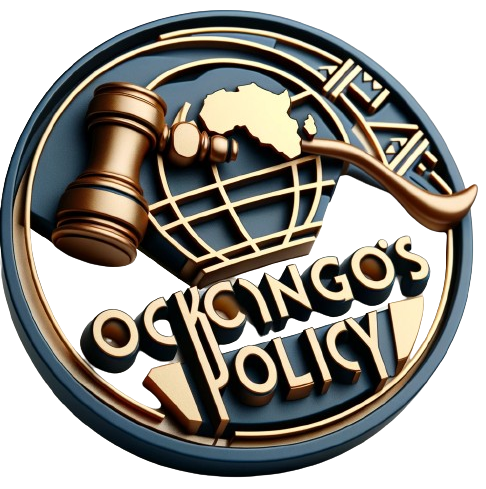Governance in Africa
Economic conditions wield a profound influence over governance structures and processes across African nations, weaving a complex tapestry of interdependence. Picture this: when economies stabilize, there’s often an uptick in governance quality; increased revenues empower governments to channel funds into public services and infrastructure projects that uplift communities. Conversely, the specter of economic instability looms large—political upheaval can erupt, shaking the very foundations of effective governance to their core.
In certain regions, a heavy reliance on natural resources creates precarious vulnerabilities. The rollercoaster ride of fluctuating resource prices sends shockwaves through government coffers, paving the way for corruption to seep in like an unwelcome guest at a party. And then there’s economic inequality—a smoldering tinderbox that can ignite conflict and social unrest—further complicating the already tangled web of governance dynamics.
The interplay between economic performance and governance is anything but straightforward. Picture robust economic growth as fertile soil where institutions sprout up—ones dedicated to accountability and transparency thrive here. Investment in education and job creation acts like sunlight breaking through clouds, empowering citizens with knowledge and opportunity; they become change-makers demanding better from their leaders while holding them accountable for their actions (or lack thereof). Yet when economies falter? Governments find themselves shackled by limitations—institutions weaken, trust evaporates—and chaos often ensues.
Thus emerges a vital truth: tackling economic challenges isn’t just important—it’s essential for cultivating an environment ripe for sustainable development across Africa’s diverse landscape of nations.
Resource Management and Political Stability
Navigating the labyrinth of resource management is absolutely vital for securing political stability across numerous African nations. Picture this: countries brimming with natural treasures often find themselves ensnared in a web of governance woes—corruption and mismanagement lurking like shadows, ready to spark social upheaval. The delicate balance of capturing and equitably distributing these bounties can pivotally shape a nation’s political landscape. Enter transparent fiscal policies and sustainable management practices—they’re not just buzzwords; they’re lifelines that can cultivate trust between governments and their citizenry. When that trust blossoms, the doors swing wide for economic growth, which becomes a cornerstone for enduring stability.
On the flip side, however, ineffective resource governance can stoke the fires of tension and conflict. In areas where wealth from resources stands starkly juxtaposed against pervasive poverty, competition over access morphs into fierce ethnic rivalries and political discord. To stave off such turmoil, it’s imperative that resource riches are shared broadly among the populace. Crafting robust regulatory frameworks while amplifying community engagement in resource stewardship isn’t just smart; it’s essential—it lays down pathways to peaceful coexistence and bolsters democratic ideals. Policymakers must elevate responsible management as a priority if we hope to nurture an environment ripe for stability and development amidst this intricate tapestry of challenges.
| Country | Primary Resource | Issues Faced | Governance Practice |
|---|---|---|---|
| Nigeria | Oil | Corruption, Mismanagement | Fiscal Transparency Initiatives |
| Democratic Republic of the Congo | Minerals (Coltan, Cobalt) | Conflict Financing, Poverty | Sustainability Regulations |
| Angola | Diamonds | Unequal Distribution | Community Engagement Programs |
| South Africa | Gold | Strikes, Labor Disputes | Robust Labor Laws |
| Zambia | Copper | Resource Curse | Decentralized Revenue Sharing |
Gender and Governance
The interplay between gender and governance wields a profound influence on the architecture of political systems throughout Africa, shaping them in ways both nuanced and stark. When women step into positions within governance structures, the ripple effect often leads to policy-making that resonates with a tapestry of diverse needs. It’s not just about inclusion; it’s about crafting a decision-making landscape that’s inherently more equitable—one that touches vital domains like education, health care, and social welfare.
Research paints an intriguing picture: countries where women’s political participation flourishes tend to bask in greater stability and witness improved developmental trajectories. This observation underscores how fundamentally intertwined gender is with effective governance frameworks—a relationship as complex as it is essential.
Across the continent, a myriad of initiatives has sprung forth to elevate women’s roles in political spheres. We’re talking capacity-building programs bursting onto the scene alongside awareness campaigns that catch fire among communities, all while legislative measures push for gender parity at leadership levels. A growing recognition among governments and civil society organizations highlights this crucial truth: inclusive governance must reflect the rich demographics of its citizenry. By empowering women to seize leadership opportunities, we unlock doors to more comprehensive and representative forms of governance—ultimately serving society’s broader interests amidst a symphony of voices waiting to be heard.
Women’s Participation in Political Processes
The participation of women in political arenas isn’t just a nice-to-have; it’s absolutely vital for crafting governance that truly includes everyone and brings varied viewpoints into the decision-making mix. When women step into these spaces, their impact can be profound—especially on policies that hit home in their communities, like health care, education, and social justice issues. Yet, despite this immense potential to shape outcomes, many women find themselves grappling with a slew of obstacles: from deep-rooted sociocultural hurdles to limited access to essential resources and insufficient backing within the very political frameworks designed for governance.
Encouraging women’s involvement in politics is not merely important—it’s imperative for bolstering democracy itself and pushing the agenda of gender equality forward. Across the continent, a wave of initiatives has sprung up aimed at empowering women through training programs, mentorship opportunities, and financial assistance. Some nations have even adopted quotas as a strategy to ensure that women’s voices echo adequately within legislative chambers. These endeavors strive not only to elevate women’s presence in politics but also endeavor to shift societal perceptions regarding their rightful roles within governance structures altogether.
Technology and Governance
The infusion of technology into the realm of governance has sparked a seismic shift in the operational landscape of public administration throughout African nations. Digital tools—oh, they are not mere gadgets but powerful catalysts!—have revolutionized transparency and communication, crafting new pathways between governments and their citizens. E-governance platforms emerge like beacons, illuminating access to public services while streamlining resource management with striking efficiency.
But wait, there’s more! These innovations often usher in a wave of enhanced accountability; citizens now wield the power to scrutinize government activities with newfound vigor. The embrace of technology fuels data-driven decision-making processes that elevate policy implementation to unprecedented heights—a veritable renaissance for effective governance!
Moreover, this technological evolution unfurls fresh horizons for civic engagement. Social media platforms morph into vibrant arenas for public discourse where voices echo and opinions resonate, empowering citizens to challenge leaders and demand responsibility. Mobile technology becomes an elixir for many individuals across rural landscapes—where traditional political avenues may seem distant or inaccessible—inviting them to step forth as active participants in governance.
Such advancements—ah yes! They do more than simply promote inclusivity; they enrich the very fabric of governance itself by nurturing a dynamic tapestry woven from responsiveness and participation at every level.
Digital Transformation in Public Administration
The infusion of digital technologies into the realm of public administration is nothing short of a seismic shift in governance structures all across the continent. Governments are increasingly leaning into e-governance initiatives, aiming to turbocharge service delivery, streamline operations, and boost transparency like never before. Imagine this: by leveraging digital platforms, public institutions can deftly manage resources while engaging with citizens in ways that feel more immediate and responsive. It’s a transformation that not only cultivates accountability but also slices through bureaucratic red tape—ushering in an era where governance becomes much nimbler.
And there’s more! Investments in robust digital infrastructure play a crucial role in fostering data-driven decision-making. Governments have the opportunity to seize big data and analytics as their allies—unearthing insights into citizen behaviors and evaluating how efficiently public services operate. The embrace of these digital tools greatly amplifies communication between governmental agencies and the people they serve. With improved access to information at everyone’s fingertips, democracy itself gets a powerful boost; it empowers citizens to dive headfirst into the process of governance instead of merely observing from afar. As we ride this wave of digital transformation onward, its potential to completely upend traditional public administration creates exciting prospects for more inclusive and participatory models across Africa!
Case Studies of Governance Successes
In a tapestry woven with resilience and innovation, several African nations have burst forth with remarkable strides in governance—shining examples that could illuminate the paths of others. Take Rwanda, for instance. Emerging from the shadows of conflict, this nation has orchestrated an astonishing symphony of post-conflict reconstruction and inclusive governance. With initiatives designed to bolster citizen engagement while simultaneously fueling economic development and championing gender equality, Rwanda’s multi-faceted strategy carved out a realm of stability that propelled its economy skyward. It’s no wonder it now stands tall as a beacon for the region.
Then there’s Botswana—a compelling narrative in effective governance, where resource management dances harmoniously with democratic institutions. Here lies a country steadfastly devoted to transparency and accountability; these principles have sown seeds of sustained economic growth interwoven with political stability. The unwavering commitment to democracy has nurtured a vibrant civil society that thrives on active citizen participation—a dynamic interplay between government and populace that embodies true empowerment. These triumphs reveal not just isolated victories but rather the vast potential for exemplary governance models to blossom across various landscapes throughout the continent!
Exemplary Countries in Governance Practices
Rwanda stands out as a striking illustration of effective governance in Africa, particularly in the wake of its harrowing genocide. The leadership here has placed an unwavering emphasis on transparency, accountability, and active citizen engagement—a triad that fuels progress. Through a kaleidoscope of innovative policies and community-centric initiatives, this nation has not only navigated the tumultuous waters of recovery but also soared to impressive heights in socio-economic growth while steadfastly maintaining political stability. With digital platforms woven into the fabric of public service delivery, Rwanda is slashing through corruption like a hot knife through butter—making information readily accessible to its citizens and rebuilding trust in governmental operations.
On another front lies Botswana, often heralded for its robust governance and democratic ideals. This nation boasts a legacy marked by stable political leadership intertwined with a solid legal framework—a combination that nurtures effective resource management and propels economic development. Botswana’s unwavering commitment to upholding the rule of law alongside bolstering democratic institutions has birthed consistent advancements in human rights and civil liberties. Moreover, by actively involving citizens in decision-making processes, there’s been an organic cultivation of ownership and responsibility towards national policies—an alchemy that further fortifies governance practices across this resilient nation.
Future Directions for Governance in Africa
The governance landscape in Africa is undergoing a whirlwind transformation, propelled by an eclectic mix of factors that range from technological breakthroughs to shifting societal norms. Picture this: digital democracy is rising like a phoenix, fundamentally altering the ways citizens interact with their governments. The advent of mobile technology and widespread internet access has flung open new doors for civic engagement—now individuals can amplify their voices and demand accountability almost instantaneously! In response, governments are increasingly tapping into these digital tools to refine service delivery and bolster transparency, creating a ripple effect that nurtures trust between the state and its populace.
But wait—there’s more! The potential for enhancing governance is teeming with possibilities, particularly through the lens of data analytics and artificial intelligence. These cutting-edge technologies could be game-changers in optimizing resource distribution and cutting through bureaucratic red tape like a hot knife through butter. Plus, there’s an awakening recognition regarding the need for inclusive governance that embraces a tapestry of voices—including those often overlooked such as women and marginalized groups. As nations navigate these turbulent waters, it becomes ever clearer: a steadfast commitment to fostering resilient institutions alongside vibrant civic engagement will be pivotal in sustaining progress toward effective governance across this diverse continent.
Emerging Trends and Opportunities
The rapid surge of technology’s embrace throughout Africa’s myriad sectors unveils a tapestry of remarkable opportunities poised to elevate governance. Digital innovations are weaving threads of more efficient communication between governments and their citizens, transforming the landscape of interaction. E-governance initiatives burst forth, illuminating pathways for transparency and accountability, where individuals can now engage directly with public institutions in ways previously unimagined.
As nations pour resources into infrastructure to bolster these technological advancements, the prospects for refining data collection and analysis become increasingly vivid—like light refracting through a prism—leading to policy decisions that are not just informed but infused with insight.
Moreover, the swell of participatory governance is gaining traction like waves crashing upon a shore, reinforcing democratic ideals throughout the continent. Grassroots movements and civil society organizations are orchestrating strategic alliances designed to amplify marginalized voices within political discourse. This burgeoning trend fosters inclusivity while empowering communities to carve out influence in decision-making processes. Consequently, African nations stand on the brink of harnessing local knowledge and expertise—opening doors to governance models uniquely tailored to resonate with the diverse needs of their populations.
- Increased investment in digital infrastructure to support e-governance initiatives.
- Enhanced public engagement through mobile applications and online platforms.
- Growth of data analytics capabilities to inform evidence-based policy-making.
- Strengthening partnerships between government, private sector, and civil society for more effective governance solutions.
- Expansion of citizen feedback systems to ensure ongoing dialogue and accountability.
- Promotion of digital literacy programs to empower citizens and bridge the technological divide.
- Increased focus on cybersecurity measures to protect sensitive governmental and personal data.
Conclusion
The ever-shifting terrain of governance in Africa paints a vivid picture of the complex challenges and bright opportunities that will ultimately sculpt the future of the continent. Economic dynamics, resource stewardship, and the quest for gender equality are pivotal forces steering political stability and public administration alike. Various nations, through innovative strategies and sweeping reforms, have witnessed transformative shifts—each ripple offering profound lessons to others watching from afar.
As Africa charts its course toward more effective governance, harnessing technology and nurturing inclusive participation emerge as vital imperatives. The promise of digital innovations alongside transparent processes opens new avenues for enhanced governance structures. With emerging trends unfolding like petals in bloom, collaboration among countries and diverse stakeholders stands poised to create a sturdier foundation for sustainable development—a tapestry woven with shared aspirations and collective strength.







